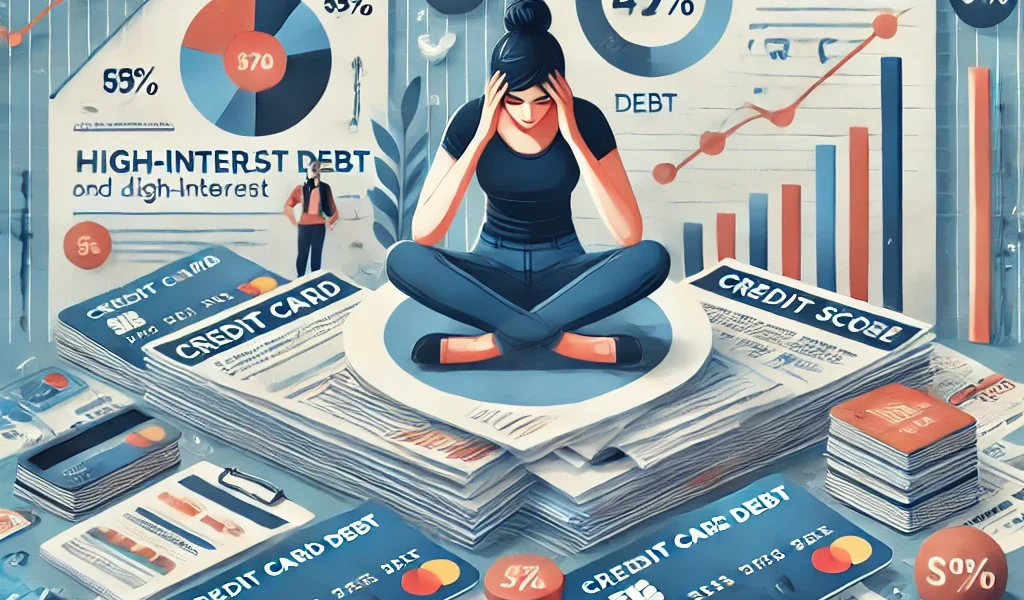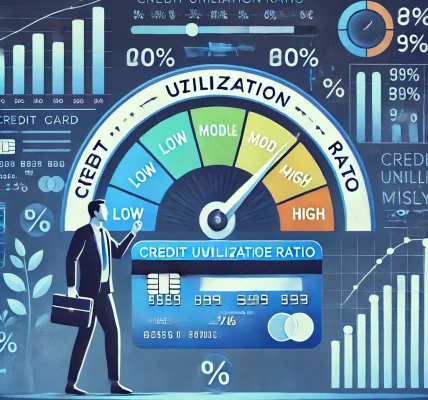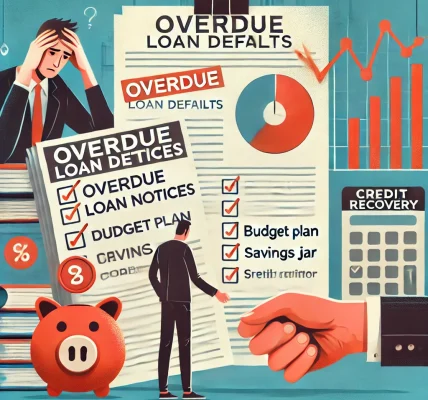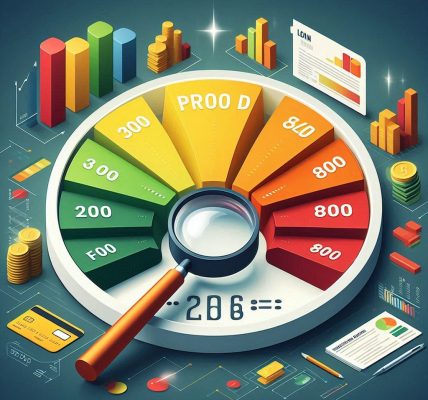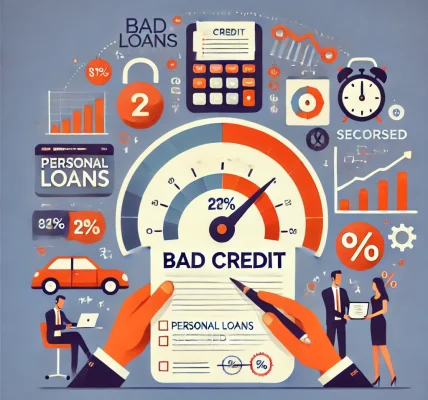Credit cards are a convenient financial tool, offering flexibility and rewards. However, when not managed properly, credit card debt can become a financial burden that negatively impacts your overall financial health. Understanding how credit card debt affects your finances is crucial in taking control of your money and working toward financial stability.
This guide will break down the impact of credit card debt on various aspects of your financial health and provide actionable strategies to manage and eliminate it effectively.
How Credit Card Debt Affects Your Financial Health
1. High-Interest Rates and Increased Costs
Credit cards typically carry higher interest rates than other types of loans. If you carry a balance from month to month, the accrued interest can add up quickly, making it harder to pay off your debt.
Example:
- If you have a $5,000 balance on a card with a 20% annual percentage rate (APR) and only make minimum payments, it could take years to pay off, costing you thousands in interest.
Solution: Pay more than the minimum due to reduce interest costs and clear debt faster.
2. Negative Impact on Credit Score
Your credit score is an essential factor in securing loans, renting apartments, or even getting a job. Credit card debt affects your credit score in multiple ways:
Key Credit Score Factors Affected:
- Credit Utilization (30% of Score): A high balance relative to your credit limit can lower your score.
- Payment History (35% of Score): Late payments negatively impact your score.
- New Credit Inquiries (10% of Score): Applying for multiple credit cards in a short time can reduce your score.
Solution: Keep your credit utilization below 30% and always make payments on time.
3. Debt Cycle and Financial Stress
Carrying credit card debt for an extended period can lead to a vicious cycle where you’re constantly paying interest but making little progress in reducing your principal balance. This can cause financial stress and anxiety, affecting your overall well-being.
Signs of Financial Stress:
- Struggling to make minimum payments.
- Avoiding credit card statements due to fear of the balance.
- Relying on credit cards to cover basic expenses like rent or groceries.
Solution: Create a budget and focus on reducing unnecessary expenses to prioritize debt repayment.
4. Reduced Ability to Save and Invest
When a significant portion of your income goes toward credit card payments, it limits your ability to save for important financial goals such as:
- Emergency Fund (3-6 months of expenses)
- Retirement Savings (401(k), IRA, or other investments)
- Home Ownership (Down payment savings)
Solution: Prioritize paying off high-interest debt while setting aside small amounts for savings to prevent future financial emergencies.
5. Potential for Legal Action
If credit card debt remains unpaid for an extended period, creditors may take legal action. This can lead to:
- Debt Collection Calls: Persistent calls and letters from collection agencies.
- Lawsuits: Creditors may sue for the outstanding balance, leading to wage garnishment or liens on property.
- Bankruptcy Risks: In severe cases, excessive credit card debt may lead individuals to file for bankruptcy, which severely impacts credit scores.
Solution: Contact your creditors early if you’re struggling with payments. Many offer hardship programs that can temporarily reduce your interest rate or payment amount.
How to Manage and Eliminate Credit Card Debt
1. Create a Debt Repayment Plan
There are two primary strategies to tackle credit card debt:
- Debt Snowball Method: Pay off the smallest balances first to gain momentum.
- Debt Avalanche Method: Focus on paying off high-interest debt first to save the most money on interest.
Choose the strategy that works best for your motivation and financial situation.
2. Consider Debt Consolidation
Debt consolidation allows you to combine multiple credit card balances into one loan with a lower interest rate. This can simplify payments and reduce interest costs.
Options:
- Personal Loans
- Balance Transfer Credit Cards (with 0% APR promotional periods)
- Home Equity Loans (for homeowners)
3. Negotiate with Creditors
Many credit card companies are willing to negotiate a lower interest rate or a payment plan if you communicate your financial difficulties.
How to Negotiate:
- Call your credit card issuer and explain your situation.
- Request a lower interest rate or a temporary hardship program.
- Get any agreements in writing to ensure clarity.
4. Avoid Accumulating More Debt
While paying off existing credit card debt, avoid adding new debt by:
- Using cash or debit cards for purchases.
- Tracking spending with a budgeting app.
- Sticking to a monthly budget and avoiding impulse spending.
5. Increase Income to Accelerate Debt Payoff
If possible, find ways to increase your income and allocate extra earnings toward debt repayment.
Ways to Boost Income:
- Take on a side gig (freelancing, ridesharing, tutoring, etc.).
- Sell unused items for extra cash.
- Request a salary raise or look for a higher-paying job.
Final Thoughts: Taking Control of Your Financial Future
Credit card debt can significantly impact your financial health, but with the right strategies, you can regain control and work toward a debt-free future. By understanding the risks, implementing smart financial habits, and taking proactive steps to eliminate debt, you can build a stronger financial foundation.
Key Takeaways:
✔️ High-interest rates can make credit card debt difficult to manage—pay more than the minimum to reduce costs. ✔️ Credit card debt affects your credit score, savings, and ability to invest in future goals. ✔️ Debt repayment strategies, consolidation options, and negotiation with creditors can help you regain financial control. ✔️ Avoid new debt while paying off existing balances and explore income-boosting opportunities.
